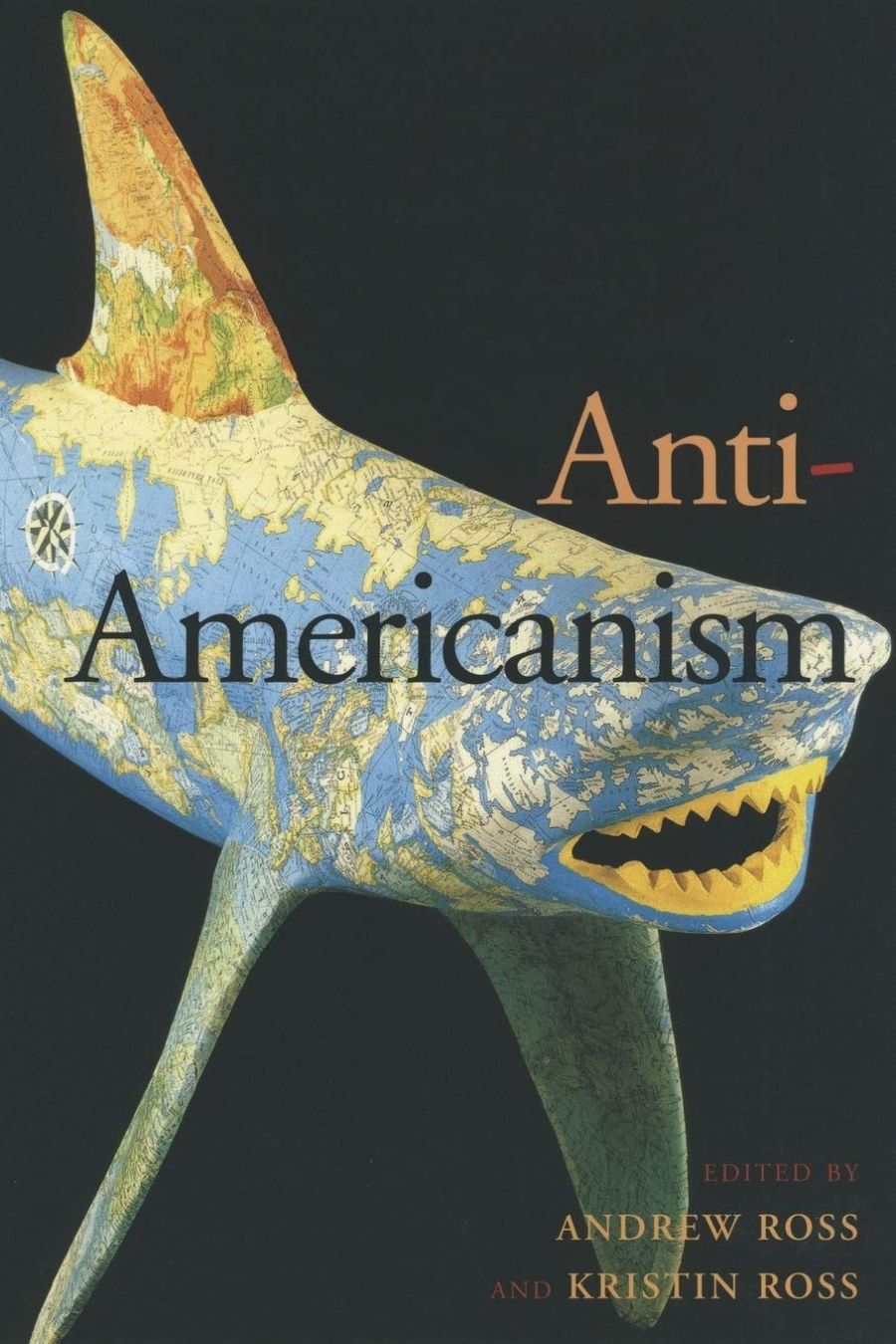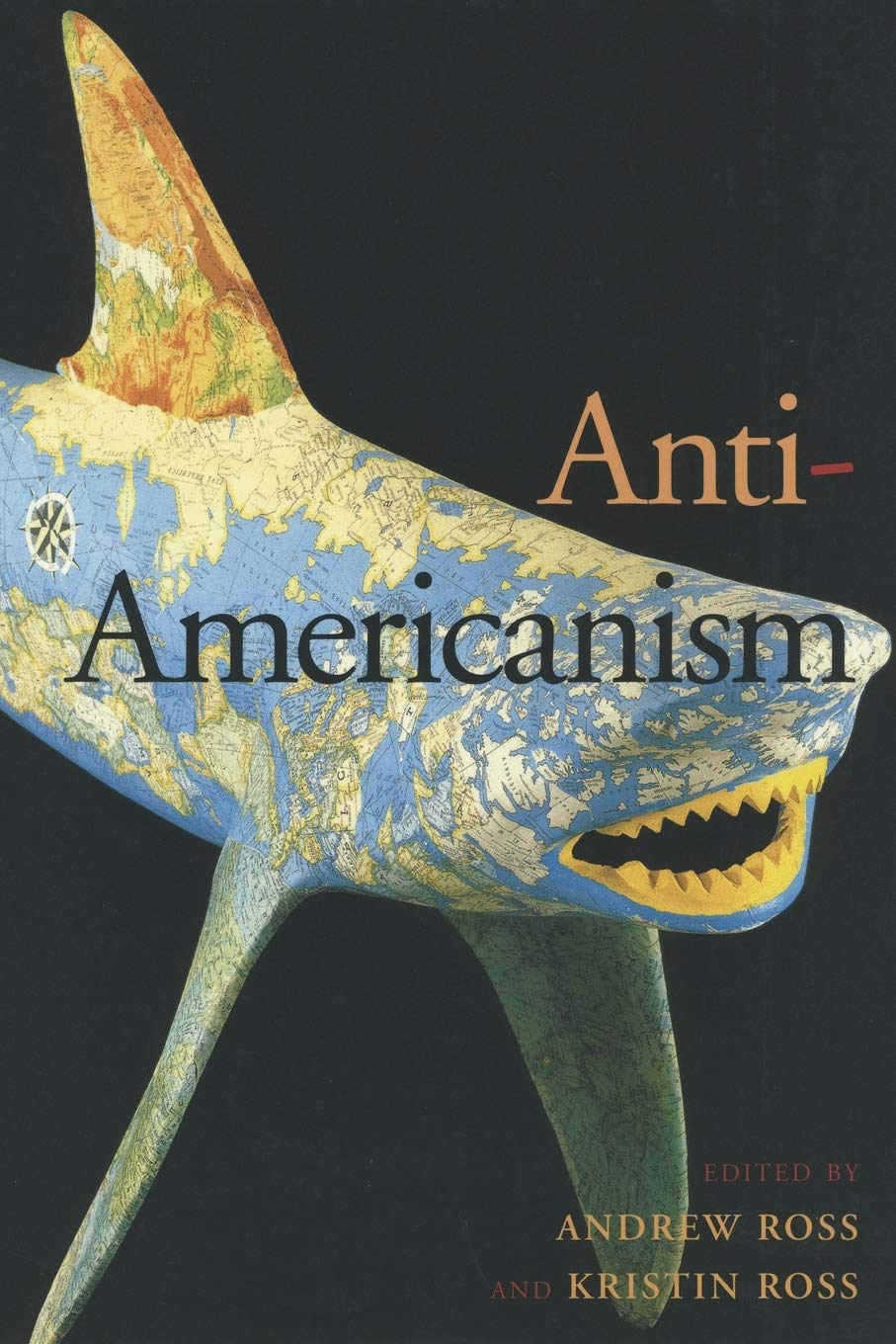
- Free Article: No
- Contents Category: Politics
- Review Article: Yes
- Article Title: I am vast, I contain Bushes
- Online Only: No
- Custom Highlight Text:
Anti-Americanism is one of those nonsense words, like anti-globalisation, that has become shorthand for a more complex and contradictory set of arguments and grievances. What is called ‘anti-Americanism’ generally refers to a particular set of criticisms made about aspects of the politics, economics and culture of the US. Few people have what it takes to be truly anti-American (to hate all that emanates from the US); thus anti-Americanism is more of a tendency than an actuality. However, the tendency is undeniably on the rise, with increasing numbers of people in recent times voicing their concerns around the world about US foreign policy and about Americanisation.
- Book 1 Title: Anti-Americanism
- Book 1 Biblio: New York University Press, $38.95 pb, 344 pp
- Book 1 Cover Small (400 x 600):

- Book 1 Cover (800 x 1200):

In popular political discourse, the term anti-Americanism is given life by the politics of exaggeration: for some critics, the US is principally to blame for every ill in the world, whereas some boosters seem willing to claim any international political success, such as the recent ten minutes of democratic sunshine in the Middle East, as a US triumph. This is the simplistic, sensationalised and polarised politics of our age: you must be either pro- or anti-American. The resulting media circus is difficult to compete with, but academics have long played the role of following on the heels of sensationalism, as they try to tell a more complex story to smaller audiences.
Given this pattern, anti-Americanism is a subject crying out for more detailed historical and regional analysis than politicians or shock jocks are likely to give it. This book, edited by two New York University academics and written entirely by them and their colleagues, had the chance to start this important work by examining the various global grievances held against the US. Unfortunately, only a few of the contributors seem willing to engage in the serious work of detailing and analysing the historical roots and causes of anti-Americanism around the world. The majority rehash familiar tales.
While I would dismiss much in this book, I do think some sections of the Rosses’ book are praiseworthy. The chapters on Latin America and the Middle East are commendable and well worth reading. This problematic word – ‘anti-Americanism’ – becomes even more so when one acknowledges that there are North and South Americans spread from the Yukon to the bottom of the Andes. This leads some Latin Americans to talk of their America and our America.
Viewed from its own backyard the US has many faults. The history of overt and covert military actions waged by the US in Guatemala, Chile, El Salvador, Nicaragua, Columbia and Panama gives the people of the region many reasons to dislike the US and its influence. These actions are some of the most dishonourable in the history of US foreign policy.
One of the standout chapters discusses the history of Cuban anti-Americanism. In Cuba, anti-Americanism is clearly more than a series of grievances and anxieties; it has the place of an official doctrine and an official religion, with the US embodying the dual evils of imperialism and capitalism.
An anti-American ideology emerged in Cuba that was dangerous to dissent from, as Ana Maria Dopico writes: ‘Participation in the rhetoric of anti-Americanism became, from 1961 on, a litmus test for participation in and solidarity with la revolucion and with the nation.’ Like many other rigid ideologies this has come with obvious costs, robbing anti-Americanism ‘of spontaneity … and freezing it into the political liturgy of the state and the gestural ritual of Fidel Castro’.
The other exceptional chapter in the book is by Timothy Mitchell on the topic of ‘American power and anti-Americanism in the Middle East’. Mitchell argues that, relative to its imperial ambitions, the US has often been unable to affect the outcomes it desired in the Middle East. For Mitchell, this points to the limits of US power. As governments emerged that were often hostile to its interests, the US became involved in prolonging conflicts to keep its enemies weak. This tactic was employed during the Iraq–Iran War when the US aided both sides. The US also played an important role in protracting the length of the Soviet involvement in Afghanistan. American support of the expansion of Israeli settlements in the West Bank and Gaza can also be seen as part of this pattern of behaviour. Among the secular left and some radical Islamic groupings in the Middle East, this history is the source of considerable antipathy towards the US. However, Mitchell tends to see such ‘anti-Americanism’ as actually rather marginal in the Middle East. In the case of Egypt, Mitchell argues that the ‘largely secular left opposition’ to US imperialism was given almost no room to organise, whereas the officially sanctioned Muslim Brotherhood was able to stage large protests against the Iraq War. However, Mitchell claims that the US has often fostered an alliance with such Islamist groups in order to counteract secular threats. These alliances are also often relationships of economic convenience, creating a situation quite the opposite from Benjamin Barber’s alleged struggle between Jihad and McWorld. Instead, as Mitchell neatly suggests, we have ‘McJihad’.
In our complicated world, it is tempting to simplify matters by indiscriminately blaming the US. There is much to dislike about the Bush administration. Thus starts the easy slide towards anti-Americanism, particularly when we start confusing governments with people, and talking of a few multinationals as though they equal a nation’s culture. However, when we remember just how contradictory America can be, the caricature of the devil dressed in Stars and Stripes does not seem quite as easy to draw. The best chapters in this volume explore these tensions and paradoxes; however, too many confuse their dislike of Bush with a damnation of the US more generally.


Comments powered by CComment